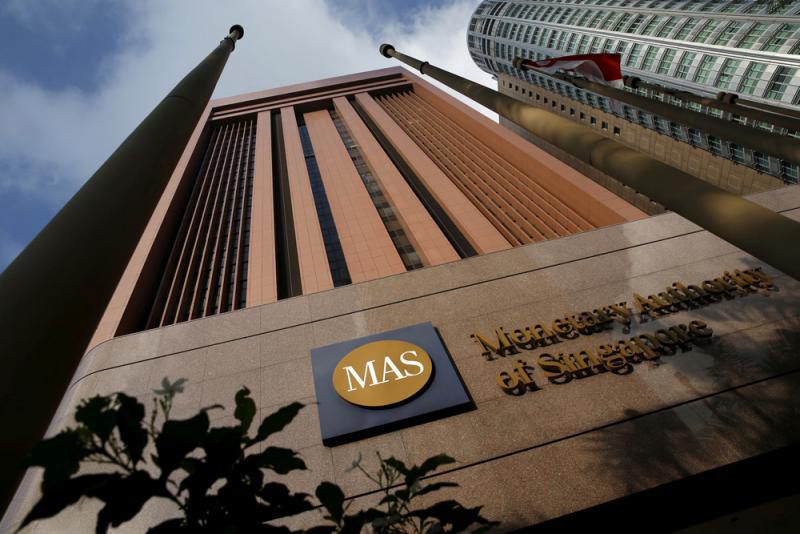———— Release time:2020-02-13 Edit: Read:54 ————

Picture: Exterior of the Monetary Authority of Singapore Building
According to Last week's announcement on the official website of the Singapore Monetary Authority ( MAS), the "Payment Service Bill" has been formally enacted and named the "Payment Service Act" (Payment Service Bill) Act) after going through the Second Reading and being passed by Congress. MAS will comprehensively supervise the Singapore Digital Currency Exchange, wallets and OTC platforms from both risk control and compliance directions. At the same time, electronic payment services such as Alipay and WeChat are also regulated.
First, scope of supervision
The scope of the bill is that of all relevant institutions that actually operate in the Singapore market, not just those registered in Singapore. Therefore, large exchanges such as Huobi and Binance, which have operations in Singapore, need to start preparing for license applications.
Under the implementation of the Act, the two regulatory frameworks, the "designation system" and the "licensing system", run side by side. The regulated businesses include account opening services, domestic and cross-border transfer services, commercial procurement services, electronic payment services, payment token related services, and currency exchange services. The main regulatory risk points include money laundering and terrorist financing, customer or merchant property loss due to bankruptcy, fragmentation and interoperability restrictions, and technological and cyber risks.
In the "Licensing Business", the "currency exchange", "standard payment agency" and "large payment agency" licenses are issued respectively. The determination of which type of license is applicable to the service provider mainly depends on the amount of electronic money and transaction Large and small, if the entity is applicable to "standard payment institutions" which hold the digital currency does not exceed S $ 5 million and the monthly transaction amount exceeds S $ 3 million,.
Second, key points of supervision
When a service provider goes bankrupt. The bill requires major payment institutions to protect customers' funds from losses by using any of the following methods: 1. Any bank or designated financial institution undertakes to bear full responsibility for such payments to customers; 2. Deposits in trust accounts; 3. Other means to protect prescribed by the Singapore Monetary Authority
In response to the risk of money laundering and terrorist financing, MAS will supervise illegal cross-border transfers and anonymous payments. Of course, electronic currency token exchanges are no exception.
In response to network security risks, MAS requires service providers to have sufficient risk management capabilities in areas such as user authentication, data loss protection, and network attack prevention and detection.
In addition, setting amount and flow caps for personal payment accounts is also one of the risk control measures. The Payment Services Act stipulates that the digital currency (similar to Alipay balance) in a personal payment account must not exceed S $ 5,000; the maximum cumulative amount flowing out of a personal payment account (rather than a user-designated bank account) cannot exceed S $ 30,000 per year . These caps of the amounts do not apply to commercial use of commercial payment accounts.
Third, impact of regulation on the digital currency industry
The bill makes Singapore one of the few countries with clear regulation of the digital currency business. After the bill was introduced, digital currency-related industries in Singapore are no longer a vague area of regulation. After the implementation of a relatively stable policy, it is reasonable to believe that more and more digital currency companies will conduct business in Singapore. This may also be a vision that the Singapore government would like to see.
In response to questions from Parliament, Tharman, the Deputy Prime Minister and Minister of MAS, said, "The threshold for electronic money protected by the new bill will be reduced from S $ 30 million to S $ 5 million. This means that if the average daily floating amount exceeds S $ 5 million Any electronic money held by the payment institution will be fully protected. If the average daily floating amount does not exceed S $ 5 million, no safeguard measures will be taken, provided that the payment institution makes appropriate disclosure to consumers. "
The author believes that digital currency exchanges with a daily floating amount of more than S $ 5 million will be guaranteed, but it must meet the risk control and compliance requirements specified in the bill, and suitable for risk-averse digital currency investors. Although the digital currency exchange less than 5 million yuan will not be protected, it is less subject to risk control and compliance, which is suitable for risk-oriented digital currency investors.